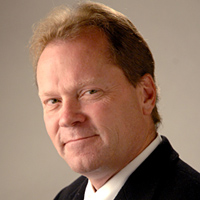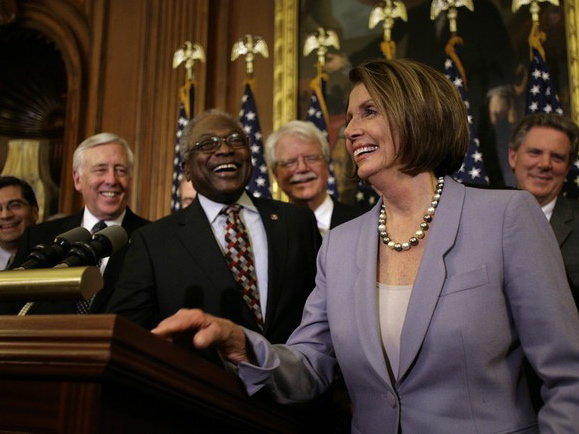To get a state budget done before the holidays, it's looking more and more like Democrats will need to take their bold Healthy Wisconsin off the table as a budget item, if the Republicans agree to consider the reform plan on its own merits in the next session.
In the meantime, Small Business Times has become ground central in the great debate over the concept of health care reform in the state, and we're happy to serve in that capacity. After all, what issue could be more fundamental to the people, the businesses and the government of our state?
To that end, I recently asked a handful of local business executives to calculate the real-world impact Healthy Wisconsin would have on their companies.
A central tenet of Healthy Wisconsin is that companies would pay a tax of 10.5 percent of their Social Security wages paid to employees. That tax, along with a tax of 4 percent to be paid by each employee, would be used to fund health care insurance coverage.
The architects of Healthy Wisconsin contend that the 10.5 percent tax would be cheaper than what most companies are paying now for employee health care insurance premiums.
But would it?
In the interest of advancing the discussion about reforming a health care system that is broken, here are excerpts from the responses of five business executives who were asked about the impact Healthy Wisconsin would have on their companies:
Mike Herro, chief executive officer of Geo-Synthetics Inc. in Waukesha, said his company is enrolled in a partially self-funded plan that costs his company 10.94 percent of its payroll. "In other words we pay the first $30,000 of every claim, after that amount is paid, an insurance company pays the balance," Herro said. "I would have a very difficult time supporting a plan that would provide less coverage than our current (plan) ... I fail to see how this proposed state health plan would provide economic benefit to working families. Control health care costs or help companies with the rising costs of health insurance."
Russell Gnant, president of Spectrum Digital Services LLC in Hartland, said his company currently pays 10.4 percent of its payroll for employee health care benefits. Spectrum switched to a health savings account (HSA) in August. "In my wildest imaginings, I cannot conceive that a (Healthy Wisconsin) plan this laughable could become law. It is almost cartoon-like in nature. Do adults that can dress themselves in the morning really believe this makes sense? This is not an argument about health care. Everybody gets health care. This is an argument about 'health pay,' an argument about who, other that me, is responsible for paying my bills. And the legislators proposing this are only interested in getting votes from those who think someone else should pay. Using my money. This is pandering at its worst and will kill business in Wisconsin."
David Kliber, president and chief executive officer of S-F Analytical Laboratories Inc. in West Allis, said his company is currently paying about 10.5 percent of its payroll for health care, but he's not buying the argument that his costs will be stabilized or lowered by Healthy Wisconsin. "On the dark side, we have a growing cancer in our profit and loss statement. Our health care costs have increased from 1 percent of sales in 1987 to 4 percent of sales today, despite the fact that sales have quintupled and the employees are sharing 30 percent of the cost of health care premiums," Kliber said in a recent Milwaukee Biz Blog. "Since the numbers to finance our business expansion were already tight, I told my banker that I don't know how I would pay our debt payments if this health care bill passes. To pay for this mandatory tax, I would be forced to consider layoffs instead of hiring employees, negatively affecting morale, plus other expenses would have to be cut; weakening the enterprise in the market."
Karen Bleach. controller of Advanced Waste Services in West Allis, said her company is paying 8.26 percent of its payroll for employee health care insurance. "The Healthy Wisconsin plan will be an increased cost on the employers and will most likely result in decreased wages for employees to offset the increased costs. To decrease insurance premiums, consumer driven plans such as health savings accounts with high deductible insurance plans need to replace the traditional PPO and HMO options. I believe we will not see a decrease in health insurance premiums until consumers have an active role in the costs of their health care."
Kirk Strong, principal at Smart Inter@ctive Media in Mequon, said his company pays only 3 percent of its payroll on employee health care benefits. "This is probably lower than most, since my wife carries me on her public school policy and all of our employees are young guys (21-35). By the way, we pay 100 percent of our employees' insurance," said Strong, who added that a tax of 10.5 percent would be a significant burden for his firm. "First off, we don't have this kinda cash just laying around. Secondly, if we did, it would go towards another salary. Healthy Wisconsin would not be healthy for our business, and we would probably move our video and web production facilities to just over the border in Illinois. We could still keep our Wisconsin area customers, and it would be our first move away from the People's Republic of Cheeseland. I'm not kidding."
What percentage of your company's Social Security wages paid are going to fund your employee health care benefit plan? To calculate that percentage, go to.
Steve Jagler is executive editor of BizTimes in Milwaukee and is past president of the Milwaukee Press Club. BizTimes provides news and operational insight for the owners and managers of privately held companies throughout southeastern Wisconsin.
Steve has won several journalism awards as a reporter, a columnist and an editor. He is a graduate of the University of Wisconsin-Milwaukee.
When he is not pursuing the news, Steve enjoys spending time with his wife, Kristi, and their two sons, Justin and James. Steve can be reached at steve.jagler@biztimes.com.







